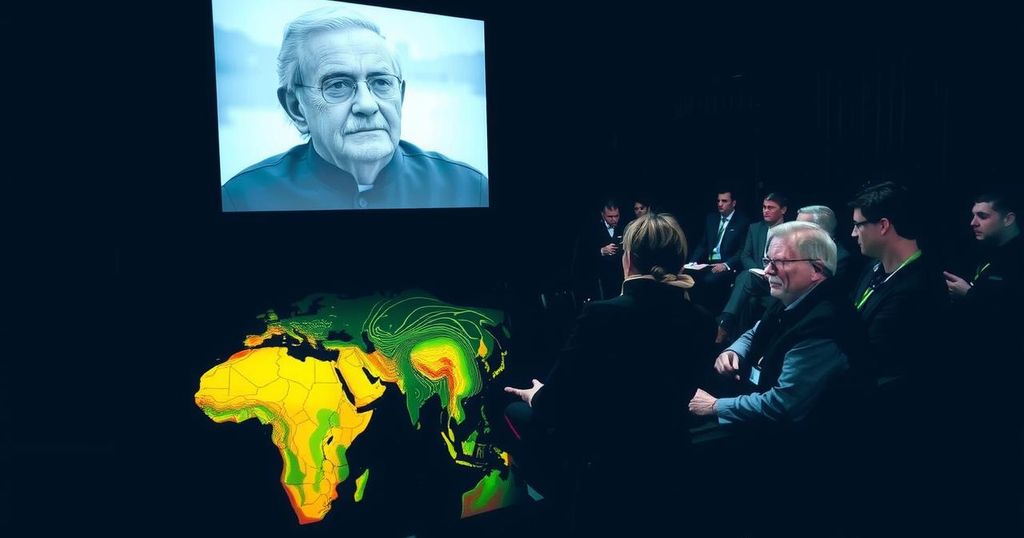The UConn students at COP29 provided insights into the multifaceted issues of climate policy, highlighting the urgency of collaboration, grassroots advocacy, and the need for systemic solutions. Key encounters included protests demanding justice for environmental degradation and discussions on renewable energy innovation. The students underscored the importance of understanding the context behind various climate challenges, the role of the private sector in funding initiatives, and the necessity of platforms like COP to address the climate crisis effectively.
At the 29th United Nations Climate Change Conference of Parties (COP29) in Baku, Azerbaijan, 14 University of Connecticut (UConn) students participated in an invaluable experiential learning opportunity designed to provide firsthand insights into climate policymaking. The conference brought together climate experts, policy makers, and global leaders to address the pressing climate crisis. UConn@COP fellows shared their experiences, highlighting significant moments, discussions, and enlightening sessions that illustrate the urgency and complexity of the issues at hand.
Mayowa Oladele, a doctoral candidate, shared compelling observations from the conference’s outset, remarking that it transcended conventional meetings, emerging as a melting pot of activism, innovative ideas, and solutions for a sustainable future. The opening day was marked by a fervent protest in which Niger Delta representatives demanded reparations for the environmental degradation linked to oil extraction, emphasizing the human cost of negligence in climate policy. Subsequent sessions focused on empowering youth for a green transition and spotlighted geothermal energy’s potential as a prominent renewable resource.
Attendees like Faiz Farooqui experienced the vibrant atmosphere in the Green Zone, where informative sessions featured discussions on sustainability in sports. Notably, Liverpool FC’s Director of Impact shed light on the club’s comprehensive sustainability initiatives, showcasing the multifaceted approach to reducing their carbon footprint. Farooqui noted the striking narratives from vulnerable Global South nations, particularly the dire circumstances in Mongolia, where harsh climate conditions compel reliance on coal burning for survival, thereby exacerbating air pollution and health crises.
Mariam Vargas articulated a critical perspective on the ongoing discourse surrounding the conference, recognizing the predominance of skepticism and criticism faced by COP gatherings. Vargas emphasized the necessity of understanding the broader context behind environmental challenges, arguing that systemic issues compel nations to adopt unsustainable practices. She also underscored the essential role of the private sector in enhancing climate funding and innovation, advocating for strategic partnerships as a means to bridge funding gaps for transitioning nations.
Ultimately, the experiences shared by these students illustrate that although COP29 is imperfect and often criticized, it stands as a crucial platform for diverse voices to engage in dialogue and pursue actionable climate solutions. As the conference progresses, the emphasis remains on collaboration to confront one of humanity’s most significant challenges.
The 29th United Nations Climate Change Conference of Parties (COP29) convened global leaders, policy makers, and climate advocates in Baku, Azerbaijan, to address critical issues surrounding the climate crisis. This annual event serves as a significant platform for discussions on climate policy, sustainability initiatives, and strategies for implementing effective solutions worldwide. The involvement of students like those from the University of Connecticut through the UConn@COP fellowship exemplifies the educational dimension of such conferences, affording participants direct exposure to the complexities of climate negotiations and advocacy efforts. The discussions at COP29 reflect a growing urgency to tackle environmental challenges and pursue tangible changes while navigating varying perspectives on climate action.
In conclusion, the experiences of UConn students at COP29 illuminate the multifaceted nature of the climate crisis and the diverse approaches being employed to confront it. Through engagement with both grassroots activism and high-level policymaking, these students recognized the importance of collaboration and nuanced understanding of global challenges. The discussions highlighted the critical need for systemic solutions and the role of various stakeholders, emphasizing that despite the critiques of COP, it remains an indispensable forum for international dialogue and progress on climate action.
Original Source: today.uconn.edu






